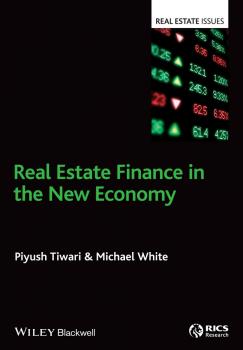ТОП просматриваемых книг сайта:















Michael White
Список книг автора Michael WhiteАннотация
The focus of this book is on how public policy – and especially the planning system – both shapes and reflects the essential characteristics of land and property markets. It challenges the common misconceptions that property markets operate in isolation from public policy and that planning permission is the only significant form of state intervention in the market. Planning, Public Policy & Property Markets contends that effective state-market relations in land and property are critical to a prosperous economy and a robust democracy, especially at a time when development aims to be sustainable and environmental protection needs to be matched by urban and rural regeneration. The book thus reflects an increased realisation among academics and practitioners of the importance of theoretical integration and ‘joined-up’ policy-making. Its rounded perspective addresses a significant weakness in the academic literature and will encourage broader debate and a more pluralist agenda for property research. Prominent contributors present important new research on different market sectors and policy arenas, including regeneration and renewal, housing growth, housing planning, transport and economic competitiveness, while the editors specifically draw out more general lessons on the dynamic nature of the state/property market relationship in a modern economy. This book will encourage all those involved in property research who strive for theoretical and practical connectivity to demonstrate that, just as property market operations cannot be analysed without understanding state processes, policy decisions cannot be taken without an appreciation of how the market operates.
Аннотация
First time in ebook format, this biography of Isaac Newton reveals the extraordinary influence that the study of alchemy had on the greatest Early Modern scientific discoveries. In this ‘ground breaking biography’ Michael White destroys the myths of the life of Isaac Newton and reveals a portrait of the scientist as the last sorcerer.According to traditional accounts, Newton was the first modern scientist . As creator of the theory of gravity, calculus, modern theories of light and devisor of the three laws of mechanics, his methods are perceived as the genesis of modern science. Yet the traditional version of his life fails to tell, by some considerable margin, the full story. How for example could Newton’s apparent empiricism be married with his interest in alchemy and magic? What had inspired him in his discoveries? How did he reconcile his scientific discoveries with his religious faith? And, most of all, who was this man who, historians tell us, remained a virgin all his life and who seemed to be an argumentative ego maniac on the one hand and a kindly old man on the other?In this revelatory biography, White paints an original picture of Isaac Newton completely at variance with the traditional portrait.
Аннотация
The financial deregulation of the last quarter century has meant large flows of funds around the world seeking the highest risk-adjusted return for investors. Real estate is now established as an important asset class and advances in information technology provide the necessary tools to complement global developments in real estate finance and investment. A variety of investment vehicles have emerged, andReal Estate Finance in the New Economy examines these along with financing and risk in the context of globalization, deregulation and an increasingly integrated international world economy by exploring questions like: How have real estate financial structures evolved as economies grow and become internationalised? What role do economic change and financial systems play in the development of real estate investment? Are the risks associated with the ‘new economy’ really new? What is the future direction for real estate financing? The authors develop an economic framework for discussions on individual financial products to examine how real estate financial structures change with economic growth and internationalisation and also to show how developments in real estate finance impact economic growth.
Аннотация
This timely book addresses key challenges faced by policy makers and the house-building industry in a post-credit crunch world. It examines the implications for households, the housing market, the economy, as well as for government's policy choices. Challenges of the Housing Economy: an international perspective brings together experts from around the world to examine recent housing market trends. The contributions reveal common long-term trends in housing markets worldwide. Despite differences in supply conditions and the role of planning, there is a trend toward rising house prices that has created significant barriers to home ownership for young households while increasing the wealth of older generations. The financial crisis had a differential impact on housing markets but in many countries where mortgage finance became severely constrained, house prices fell and there was a dramatic fall in housing construction. The falls in house prices in these countries have ostensibly improved affordability but the housing markets have been dominated by the lowering of loan to values applicable to new mortgages which has further raised the hurdles to potential first-time purchasers. At the same time as young households are increasingly rationed out of owner-occupation, public sector expenditure cut-backs in many countries result in limited new social housing. Instead, value for money imperatives will mean new funding models for affordable housing that require greater use of public-private partnerships. The private rented sector could potentially meet the demand for the new generation of long-term renters. However, there are doubts – in the UK at least – that this sector will be able to expand significantly or provide an appropriate type and standard of housing. This is an essential advanced text for students and researchers of land economy and land management; property and real estate; housing policy; and urban studies.






